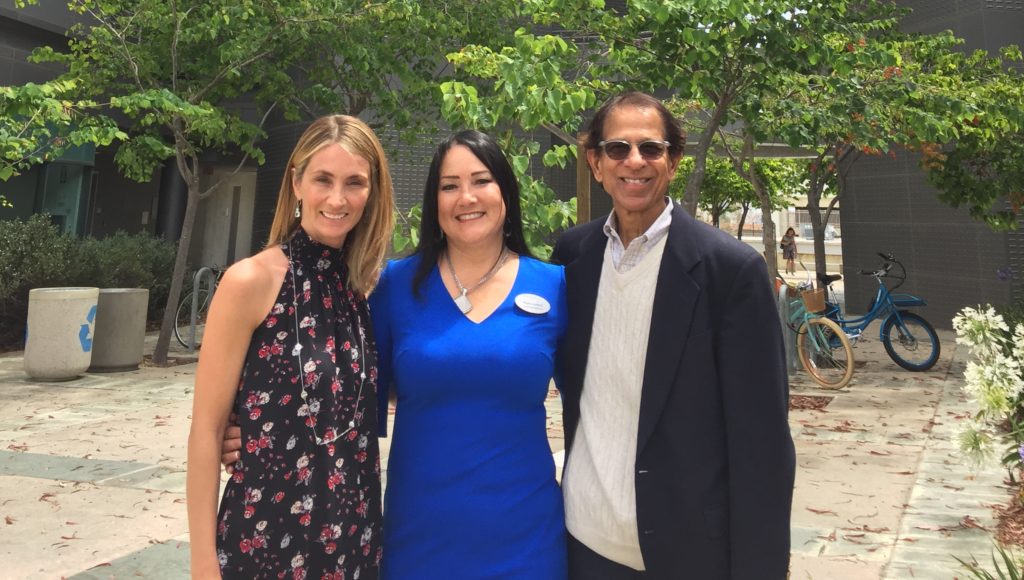UCSD’s Center for Healthy Aging resilience research centers on independent seniors
For more than a year, a major research study has been conducted by researchers at University of California, San Diego’s (UCSD), Center for Healthy Aging and Mather LifeWays Institute on Aging to test the effectiveness of an intervention to enhance resilience in older adults. The study, entitled Positive Psychological Intervention to Enhance Resilience in Older Adults, is designed to promote resilience and well-being through three group sessions along with other activities such as a happiness journal, setting goals, and discussing perceptions of aging. High resilience has been shown to be a major determinant of well-being among seniors, and is associated with lower levels of depression, anxiety, and perceived stress, improved quality of life, greater happiness, better physical health, and increased longevity.
The project was funded by Mather LifeWays in June 2017 for study in three locations in Evanston, IL, Tucson, AZ, and San Diego, CA. The first research groups met at The Mather in Evanston and at Splendido in Tucson in November 2017. Since then, four additional groups of residents participated in the resilience program. The San Diego study, which is a collaborative effort with independent living residents at Belmont Village Senior Living, started in April 2018 first at Belmont Village Cardiff by the Sea, then followed in June by Belmont Village Sabre Springs. The research should be completed by the end of 2018 with the intent to publish key findings by mid-2019.
“This pilot project is an area that hasn’t been looked at with exact data and quite frankly warrants more study and rationale to establish a nucleus of understanding about healthy aging,” said Dilip V. Jeste, M.D., Director and Senior Associate Dean for Healthy Aging and Senior Care Director, UCSD Center for Healthy Aging. “Through this collaborative effort, it is our hope that other scientists will utilize this knowledge in the future to gain a greater understanding of how people can live longer and happier lives. Key to our research is to see if this intervention can enhance resilience and maintain that enhancement over time. We will also look to see if there is a difference between sites and if location has any influence on the data. We have made a distinct effort to train everyone who is leading these research groups exactly the same, whether they are in mid-west, southwest or west regions.”
“Belmont Village Senior Living was selected for the San Diego research study because the company has established a leadership role in university-led research programs,” said Danielle Glorioso, LCSW, Executive Director, UCSD Center for Healthy Aging. “We knew that Belmont Village would be an enthusiastic participant, which we appreciate.”
“Our university collaborations are the hallmark of program development. This study will further inform our mission to focus on what is possible for our residents,” said Patricia Will, Belmont Village Founder and CEO. “We’ve collaborated with some of the nation’s top universities, including those in the UC-system, so of course, when UCSD’s Center for Healthy Aging approached us with this study opportunity, we jumped.”
Active seniors are first assessed for their cognitive appropriateness for the study. Afterwards, selected participants fill out a lengthy questionnaire that is returned to the research team at UCSD. The participants then contribute time each day and in three group meetings. After the third session, they fill out the same questionnaire again. “There was a natural hesitancy at the beginning for some of our residents, because the study opens up their personal lives and habits,” said Paula Lemkuil, Belmont Village community relations associate. “Now that they have gone through the three-week process, all are eager and fully engaged.”
“We are fully aware of the existing biases about aging, but there is a need to reframe our overall understanding as a society so that it is not all gloom and doom. Our respondents produce a daily diary where they write down at least one thing that makes them happy and one thing that makes them proud,” said Glorioso.
“We are looking to see how aging can be a positive experience in spite of physical difficulties or the normal stressful events that occur over time. All to prove that you can, under the right circumstances, without drugs or medications, improve overall well-being,” said Jeste. That is our sole goal.”
